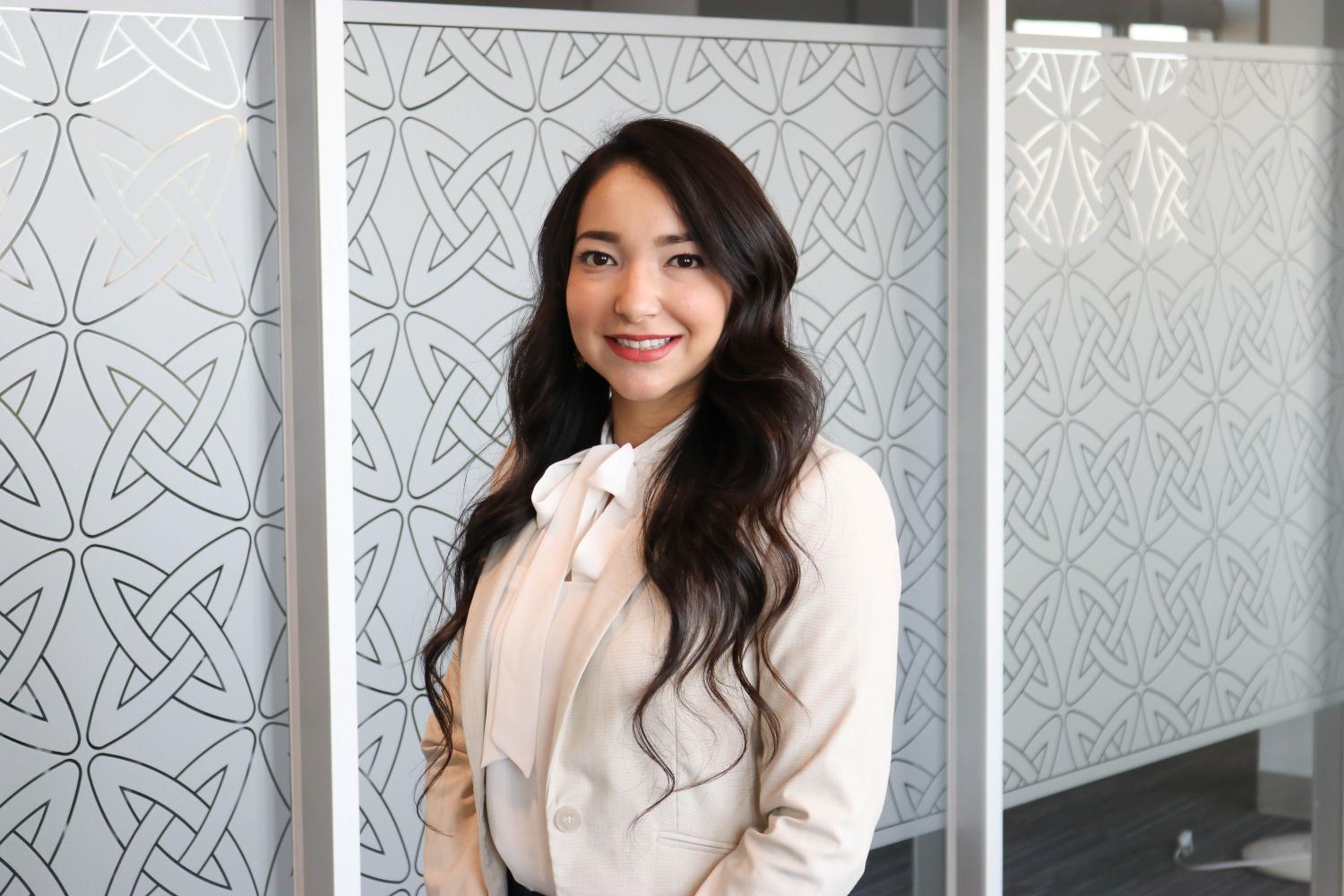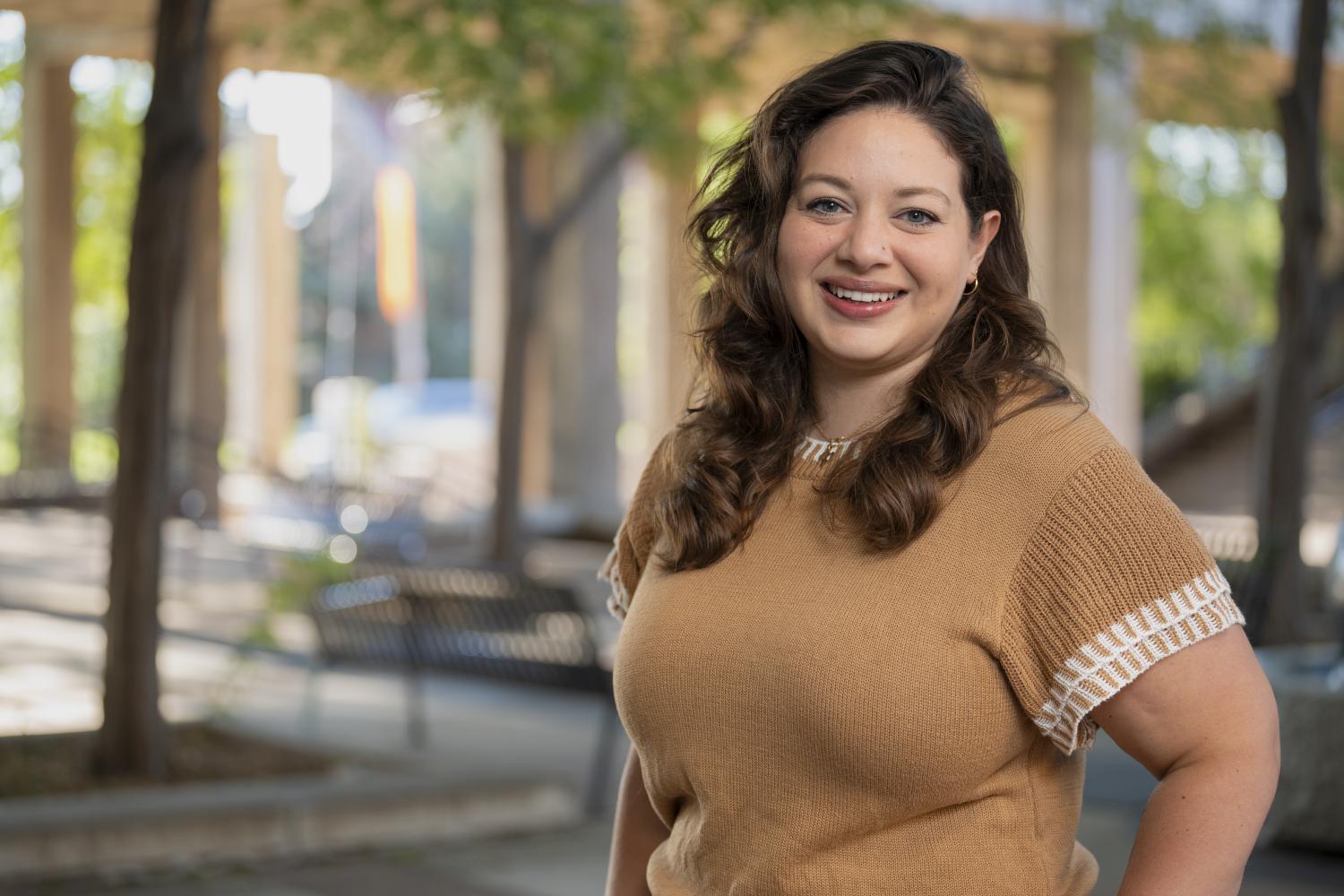Five new faculty members joining the ME department for Fall 2025
The Paul M. Rady Department of Mechanical Engineering at CU Boulder is welcoming five new faculty members this fall semester.
From responsive biomaterials and unique teaching environments to additive manufacturing, these talented scientists and engineers bring a wealth of knowledge and passion to our teaching and research missions. Please join us in welcoming them to our college and campus community!

Jun Li
Assistant Professor
Li received a Bachelor of Engineering from China’s Zhejiang University in 2016. He then earned a PhD in materials science and engineering in 2021 from the University of Wisconsin-Madison and completed his postdoctoral training in the Department of Chemistry at Northwestern University. He is joining CU Boulder as an assistant professor in both mechanical engineering and biomedical engineering.
Li’s research integrates responsive biomaterials and advanced manufacturing into wearable and implantable devices that have the power to tackle a wide range of challenges in both healthcare and sustainability. In many cases, these devices can mechanically mimic tissues and organs to enable biological functions and also incorporate electronic capabilities that provide healthcare solutions, including sensing and electro-stimulation.
Li says the aging global population is driving an urgent need for advanced healthcare materials and devices that can restore body function, expand life longevity and improve the overall quality of life. His research developing novel, responsive biomaterials and devices can provide solutions to address those challenges.
He also says his research fits right into the spirit of community at CU Boulder. “I am excited about the science, technology and opportunity ahead at this campus surrounded by the beautiful mountains to help shape a better future,” Li said. “Sko Buffs!”

Katherine Ramos
Assistant Teaching Professor
Ramos came to Rady Mechanical Engineering as an assistant teaching professor after spending some time at CU Boulder’s Integrated Design Engineering Program. Prior to that, she worked as an Instructor at the University of Notre Dame, which is also where she received a PhD in mechanical engineering in 2021 and a master’s degree in the same discipline in 2018. Her engineering journey started, however, at the University of Texas El Paso where she completed a bachelor’s degree in metallurgical and materials engineering in 2014.
Ramos says her work focuses on creating student-centered learning environments in engineering education by integrating creative teaching strategies and real-world applications. Her teaching philosophy prioritizes alternative grading practices, inclusive pedagogies that foster equitable learning environments and objectives-based grading—a method that emphasizes mastery learning and multiple assessment opportunities to support student success.
Outside of the classroom, Ramos also serves as the department’s associate chair for community engagement and outreach. She says she is excited with her multi-purpose role within the department and is focused on making a positive impact on the ME community.
“Joining the ME department allows me to bring my passion for hands-on, project based learning into courses where students can connect theory with practice and experience what it’s like to work as an engineer,” Ramos said. “I’m also excited to have the opportunity to support a larger community of students and collaborate with colleagues who value innovation and inclusion in engineering education.”

Max Saccone
Assistant Professor
Saccone received a Bachelor of Arts and Bachelor of Engineering in engineering sciences in 2017 from Dartmouth College. He then received a PhD in chemical engineering from the California Institute of Technology in 2022. Before joining CU Boulder as an assistant professor, Saccone worked as a postdoctoral researcher at Stanford University.
His research focuses on manufacturing processes and materials design strategies that are accessible, flexible, and tunable to create precision materials that address gaps in conventional manufacturing approaches.
The Saccone Group additively manufactures (3D prints) microscale objects by using polymer precursors as scaffolds, reactors, or reactants in conversion processes that can yield materials ranging from metals to ceramics to carbon. These materials have applications ranging from energy materials to biomedical devices to lightweight structural materials.
By studying the dynamic processes that convert polymer composites to inorganic materials, Saccone says his research group can design more efficient reactors for manufacturing at scale, and develop processes to make materials faster, where and when needed, and with structures and properties customized to the final application.
Put simply, Saccone said “we design processes that enable the fabrication of three-dimensionally structured materials that were previously impossible to produce.”

Leila Saleh
Assistant Teaching Professor
Saleh is another faculty member who isn’t new to Boulder. After receiving a bachelor’s degree in chemical engineering from the University of Texas at Austin, she earned both a PhD and master’s degree in chemical engineering at CU Boulder. She continued on as a postdoctoral researcher at Washington University in St. Louis Medical School, but now finds herself back at Boulder as an assistant teaching professor.
Saleh’s work exists at the intersection between immunology, materials science and engineering. Throughout her graduate student journey, she identified pathways crucial to understanding and harnessing the foreign body response to biomaterials. During her time at the St. Louis Medical School, Saleh worked to design a programmable, self-regulating biological therapeutic platform for rheumatoid arthritis.
Now, Saleh teaches full-time, primarily in courses centered around chemistry and materials science with a focus on hands-on learning and the ethical practice of engineering. Outside of the classroom, she also serves on the mechanical engineering undergraduate committee, where she works to support learning and student success within the department.
“I’m excited to be back,” Saleh said. “CU Boulder shaped me as a scientist, mentor and instructor, so it’s so nice to give back and be a part of this wonderful community again.

Kelsey Scalaro
Assistant Teaching Professor
Scalaro received her bachelor’s and master’s degrees in mechanical engineering from the University of Nevada, Reno. After five years working in the aerospace industry, Scalaro returned to Reno and earned a PhD in engineering education in 2024. She also served as a postdoctoral scholar at Cornell University with the STRIDE laboratory performing engineering education research focused on education-based practices, identity and instrument development.
While Scalaro is no longer pursuing a tenure-track research agenda, she is still heavily interested in understanding how to better educate and prepare undergraduate engineering students through the lens of applied sociology. Her particular focus is on the development of an engineering identity and how educators can provide time-oriented support that meet students where they are in their program.
Scalaro is also interested in understanding how engineering identities are supported and sustained as students enter industry and begin their careers as mechanical engineers. By applying qualitative and mixed-methods approaches to analyze these identities, and emphasizing longitudinal work, Scalaro believes professors can better tailor their pedagogical and programmatic practices to support students from a variety of backgrounds as they come to see themselves as an engineer.
“I’m super excited to draw on my industry experience and teach component design, as well as support nearly four teams in Senior Design,” Scalaro said. “And of course, I’m excited to see what skiers mean when they say Colorado snow is great!”

